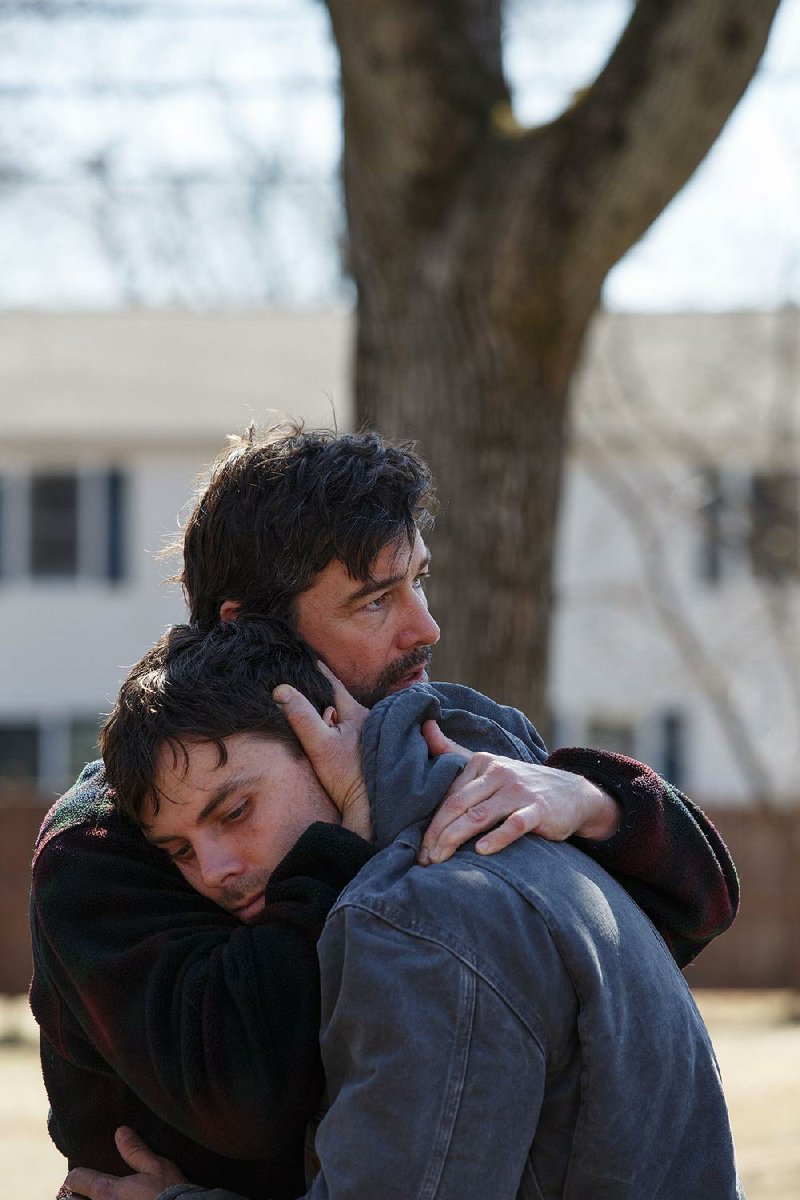Idiots in action movies (and sometimes in real life) say things like whatever doesn't kill you makes you stronger.
That's just wrong. Sometimes maybe, but more often what doesn't kill you diminishes you, takes away a part of who you might have become. You don't always get to survive your disaster. If you're lucky, maybe you'll end up with a scar -- a reminder that the past is real.
Manchester by the Sea
91 Cast: Casey Affleck, Michelle Williams, Kyle Chandler, Lucas Hedges, C.J. Wilson, Heather Burns, Tate Donovan, Josh Hamilton, Anna Baryshnikov, Matthew Broderick, Gretchen Mol
Director: Kenneth Lonergan
Rating: R, for language throughout and some sexual content
Running time: 2 hours, 17 minutes
Movies generally treat grief as a stage, as something to be gotten through on the way to a happy ending. In a way, they mimic our psychological coping mechanisms, the way we protect our sanity by preoccupying ourselves with the day-to-day. But time doesn't really heal anything, it just moves us further from the proximate cause of grief and provides distractions.
And maybe that's enough.
A lot of people still remember writer-director Kenneth Lonergan's You Can Count on Me, which explored the messy dynamics of a sibling relationship back in 2000. Almost nobody saw his magnificent, atmospheric, overlong, deeply felt (and flawed) masterpiece Margaret in 2011. He's a storyteller with an uncommon empathy for the thwarted and broken, and he resists the moralist's temptation to make their traumas stand for something. For Lonergan, as for most of us, life is something that happens to people: We're just standing there when the bus slams into us.
In the delicately acted, superbly realized Manchester by the Sea, Lee (Casey Affleck) presents as a surly sort, a Boston janitor of few words, unwilling to engage with the tenants whose problems he solves unless it's to snarl profanities at an especially silly woman. He's shut down, stolid in his Carhartt jacket, his feet forever seeking the balanced stance of a street fighter. Lee has about him an air of combative quiet; there's nothing contemplative or gentle in his stillness. He's the sort of guy you learn to leave alone.
Cut into this portrait of a hard man are what we soon realize are flashback scenes of him on a boat with his older brother Joe (Kyle Chandler) and Joe's young son Patrick (played here by Ben O'Brien). This Lee is a lighter, breezier model engaging in masculine banter with the boys. All we know is something changed Lee. Something happened to him.
But what happens now is sullen Lee gets a phone call informing him that Joe has dropped dead of a heart attack. It's not a total surprise. Joe had health issues. And Lee's the only one around to handle things. So he immediately heads to the fishing village of the title to see to his brother's affairs. And after dropping in on his brother's lawyer, he's stunned to discover that Joe has named him as (now 16-year-old) Patrick's (Lucas Hedges) legal guardian.
Lee is stricken by this charge. He instinctively understands he's in no shape to care for a robust high school kid. Surely Joe meant for someone else to take Patrick. But the boy's mom Elise (Gretchen Mol) -- an alcoholic grasper -- is long gone, and the family friend is looking to offload some of his own kids. So Lee is stuck with Patrick.
And Patrick has absolutely no desire to move to the city with Lee. Manchester is where his friends are, where he goes to school, where the soon-to-be-problematic boat his father has left him is docked.
But for reasons we sense before we understand, Manchester is toxic to Lee. He is mildly notorious there, and his discomfort is evident. He makes other people uncomfortable as well. There is a little charge of danger in him, the sense that he might bust you in the mouth if you somehow give offense, but mostly it's not that. Mostly it's his impenetrable gloom.
Time and time again we see this hard knot of a man make his way through the postcard vistas of cold and pretty New England. He's a stray, luckless and glum and burdened.
Yet somehow Lonergan imbues this movie with a lot of natural-feeling humor. Lee fumbles, loses his place, can't find his car. In the middle of what may be the most grief-struck scene in recent film history, EMTs struggle like stooges to fold a stretcher into the back of an ambulance. Patrick is, like a lot of high school kids, overscheduled, and some of the film's momentum comes from his bouncing about from place to place, from girlfriend to girlfriend. He's a hard-hitting hockey defenseman, he's the guitarist in an absolutely horrible (and absolutely accurate) garage band. He doesn't have time to grieve or even feel too bad about his dad's early death until ....
Well, if you've ever lost someone maybe you understand how the most banal objects can be transformed by heartbreak.
To say much more about the plot would be to tamper with Lonergan's delicate apparatus, the slow reveal which explains the desperation at the bottom of Lee's life. But maybe it's not too much to let you know that Lee had a prior existence, that he was married to Randi (Michelle Williams, who does nothing in her brief scenes to undermine her position as one of the finest actors working in cinema today).
Lots of people say they go to the movies to be entertained, by which I guess they mean they want to see flying robots and good guys scoring clear victories over bad guys. And there's nothing wrong with that; we all can use a little ice cream now and then. But there's another idea out there too: that art can be nourishing and sustaining, that it can in some small ways make us better people by allowing us to imagine lives and stories different from our own. Art can expand our compassion, allow us to feel as though we've experienced some other kind of existence.
That's what Manchester by the Sea is -- a chance to vicariously experience the sadness of the saddest sort of man, to acknowledge the gray primer behind the bluest skies. Our life on earth is a contained thing, with a beginning and an ending, and even the dullest of us might imagine it has an arc, that it is moving toward something. What, we don't know. We can guess. We can hope.
All we know is that we're in for the duration. That we're going to stand there and let it come at us. We can cower and cover up or we can laugh. We can do all three. In the end, it gets us anyway.
MovieStyle on 12/16/2016

